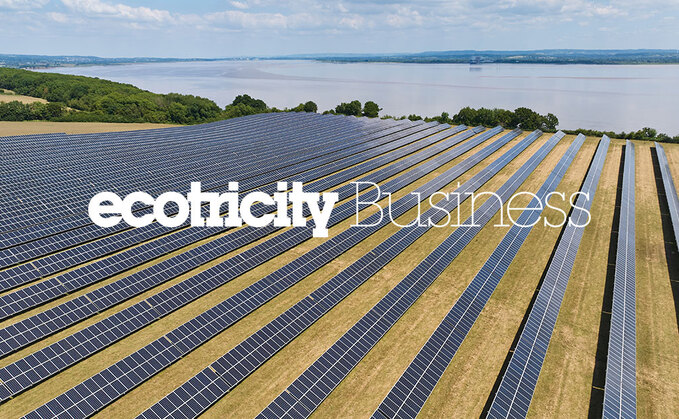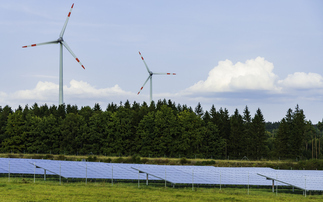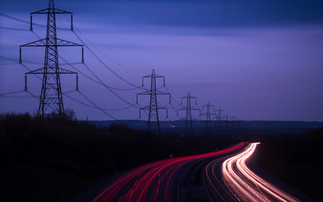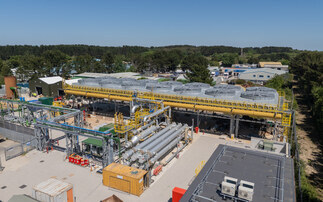
Credit: Ecotricity
Partner Insight: The journey to net zero is long, complicated and unique for every business - however, there are three clear starting points for every single business, according to UK Green Business Awards 2025 sponsor, Ecotricity Business
Every sector is in a unique position – and, within each of those sectors, every single business will be in its own unique position. In our three decades of providing green energy for the businesses of Britain, we have certainly seen the distinctive energy demands of a diverse mix of businesses.
That means it is particularly difficult for businesses to know where to start when faced with one thing that every single business does have in common: a need to cut their carbon emissions. It has already been hard enough to benchmark emissions across various scopes before getting into the actual challenge of getting those emissions to net zero.
We believe the obvious place to start is to look at the big hitters. Energy, transport and food are responsible for approximately 80 per cent of the typical individual's carbon footprint and that is why these are also the places for businesses to start. Here's how we've been doing that across the Green Britain Group that we are a part of.
Thirty years of green energy
Let's start with energy, as this was where we started when we were founded by Dale Vince OBE in 1995 and became Britain's first green energy company. We've seen the energy landscape come a long way since then; green energy has gone from being niche to mainstream. So how can you ensure your business is tackling its Scope 2 emissions most effectively by being with a truly green energy supplier?
We believe there are three different levels of energy supplier: those that trade green certificates; those that trade green energy; and those building new sources of green energy. Since day one, we have been the proud flagbearer for suppliers building new sources of green energy. For our entire history, we have been British-owned and had a not-for-dividend business model, meaning we use any excess profits from our bills to build new sources of green energy – as we like to call it, ‘bills into mills'. It's seen us build 24 wind parks across Britain (home to 74 windmills) and three sun parks – and with the help of our growing customer and partner base, we're just getting started.
That means that every business that is on supply with us isn't just supplied with 100 per cent renewable electricity and carbon neutralised gas, giving them net zero energy emissions. They are also helping us build the green Britain of the future.
Changing the menu, changing the game
Across the wider Green Britain Group, we have wanted to demonstrate that another way is possible in business operations.
One of the most prominent examples of this is at Forest Green Rovers. Since taking over the club in 2010, we see a football club and community institution as a visible example of sustainable best business practice. The positive results on the pitch since 2010 have been good to see, but so have the results off the pitch; in 2018, the UN recognised Forest Green Rovers as the "greenest football club in the world".
A key part of that green proposition has been being a fully vegan club since 2015. We want to demonstrate to football fans – whether they are vegan or not – how a plant-based diet isn't just better for the planet, but also tastier and more nutritious.
Having won awards for our menu at Forest Green Rovers, we decided to also lead the way at Ecotricity by launching what we believe to be the UK's first fully plant-based vegan canteen. The ambition with this was to simply do what an office canteen should do – offer nutritious, tasty and affordable food to employees. By achieving these things with a vegan workplace canteen, we believe we are showcasing another, greener way for workplaces.
She's electric
Empowering employees to make green transport choices is the final part of this sustainability trinity.
The Green Britain Group played a pivotal role in kickstarting the country's electric car revolution by establishing the Electric Highway in 2011. This was revolutionary at the time – the first national charging network for electric cars.
In the 15 years since then, strong national charging infrastructure means EV uptake has accelerated. That was why we sold the Electric Highway to GRIDSERVE in 2021 as they would be able to scale up the network. It means we're now in a position where EVs are a feasible as well as a green choice both for employees and for company fleets.
Businesses can empower their employees to make the sustainable transport choice by offering free EV charging for personal vehicles at the office, or with salary sacrifice schemes. The latter enables employees to lease an EV and pay for it before tax – and is something we have recently introduced for our people. And, because the greenest kWh is the one not consumed, we also operate a strong carpool network amongst our people.
This just scratches the surface of how sustainability has been at the heart of the Green Britain Group's operations for three decades, but it also gives a good summary of the philosophy we believe businesses should take: tackle the 80 per cent issues first. Don't sweat the details until you have.
Ecotricity is a partner of the UK Green Business Awards 2025.







